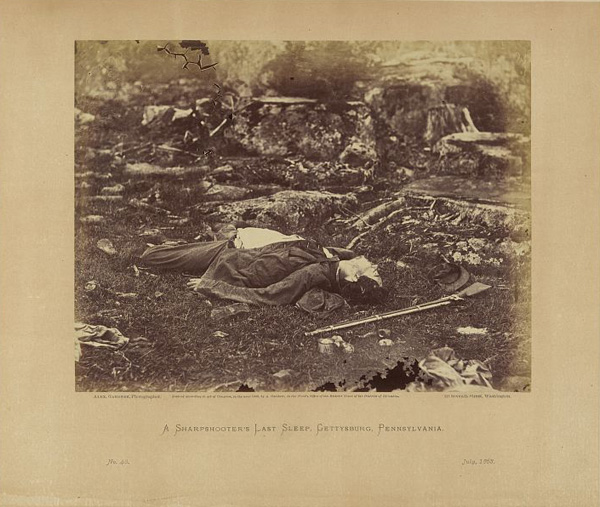
Perhaps the most poignant outcome of the new findings is the realization that an increased number of dead means an increased number of widows—by some 37,000—and an increased number of orphans, by perhaps 90,000. The men who went into the battles in the Civil War knew how likely they were to die, and we are fortunate to have some of their letters. For me, reading about Civil War mortality rates inevitably reminds me of the letter Sullivan Ballou wrote to his wife in July, 1861, before the battle of Bull Run.
…If it is necessary that I should fall on the battle-field for my country, I am ready. I have no misgivings about or lack of confidence in the cause in which I am engaged, and my courage does not halt or falter. I know how American civilization now leans on the triumph of the government and how great a debt we owe to those who went before us through the blood and suffering of the Revolution. And I am willing, perfectly willing, to lay down all my joys in this life to help maintain this government and pay that debt.
But my dear wife when I know that with my own joys I lay down nearly all of yours, and replace them in this life with cares and sorrows, when after having eaten the bitter fruit of orphanage myself, I must offer it as the only sustenance to my dear little children, is it weak or dishonorable, that, while the banner of my purpose floats calmly and proudly in the breeze, underneath my unbounded love for you, my darling wife and children, should struggle in fierce though useless contest with my love of country? I cannot describe to you my feelings on this calm summer Sabbath night, when two thousand men are sleeping around me, many of the them enjoying the last, perhaps, before that of death; and I am suspicious that death is creeping behind me with his fatal dart, and communing with God, my country, and thee.
A better count of the casualties of war provides us with the opportunity to better understand the aftermath of that war, the impact of what really were countless dead, in the South primarily but also in the North. To understand the losses is to better understand the enormous effect on the country as a whole. Read together, Dr. Hacker’s paper and Drew Gulpin Faust’s This Republic of Suffering can bring us to closer to understanding the Civil War in its time, and in ours.
~ Kirsten Hammerstrom, Director of Collections
